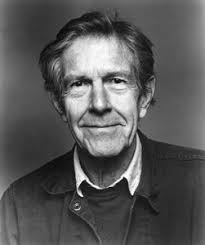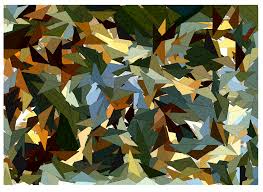
While researching an article recently on the subject of musical composition, I came across a term that was completely new to me. It was “aleatoric composition.” It has to do with the use of the element of chance in the creation of music. Choices on notes, rests, rhythms and other parts of the music are left to such unpredictable processes as card play, rolling of the dice or even I Ching. While this may sound unprofessional in its approach, I admit it fascinates me from the perspective of turning over the creative process to a power greater than myself and letting it fly.
Notable Aleatoric Composers

John Cage was an American avant-garde composer for most of the 20th Century. One of his most famous recordings, which I’d never heard until putting together this post, was called Fontana Mix. It features a female singer who periodically contributes seemingly unrelated segments of songs and spoken material ranging from jazz to opera, from acted statements in different languages to random sounds. Throughout the vocal performance, there are varied chaotic electronic sounds. These are all represented on a series of transparent cards that Cage superimposed. When seen as a stack, they form a graph and an order in which they would be recorded or played. He did that in 1958, obviously unique for the time and anytime since. It did bring remind me, however, of the John Lennon inspired Revolution 9 from 1968.
Karlheinz Stockhausen was a German composer born in 1928. He was considered by many critics as one of the most important composers of the 20th century, but also as one of the most controversial. His music was largely classical, but was outside traditional forms. An example of aleatoric work on his part was Klavierstucke (Piano Pieces). The 11th of these introduced a random element that earlier ones only hinted at, specifically by giving the pianist 19 separate sections of music to play. Following is a good description of how the piece is played from “Stockhausen: Sounds in Space.”
“From a pianist’s point of view, it may be more apt to use an “autumn leaves” analogy. Here, 19 musical “leaves” are spread in front of the player. He picks one up, “plays” it, returns it to the pile, and then picks up another to play (however, the way he plays this new leaf is affected by what he saw in the previous leaf). Sometimes he will pick up one that he’s chosen before, but he plays it anyway. However, if he realizes that he’s picked up the same leaf 3 times already, he stops, and the performance is over. In Piano Piece 11, each leaf is a few measures of score, and at the end of each score fragment is the indication of how to approach the next chosen musical fragment (in the terms of tempo, dynamic, and articulation). Instead of a “pile of leaves”, all of these musical fragments are scattered over a huge sheet of paper, and the pianist chooses the phrases randomly. He stops after he has hit the same fragment a 3rd time.”
Chance Composition
This is another term for aleatoric composition. It goes back to the early 1800’s when songwriters or composers would use dice and determine a series of notes by rolls of the dice. For instance, a “1” could be designated as a “C.” A “D” could be assigned by rolling a “2.” You can use the dice for more than pitch. They could determine the length of notes, rhythms and more. It is speculated that Mozart even used this as a game. It can be great fun to see where it leads you.
Aleatoric Grooves
Experimental music can be difficult to enjoy with its lack of predictability, its potentially herky-jerky rhythms and its discordant sounds. It does have value, though, in its capacity for stretching our musical imagination either as composer or listener. Appreciation of its expression involves hearing with a new ear and not judging it by worn out standards.
In popular music, some have dared to make sounds that go against the industry dictates based on past commercial success. Ragtime, rock ‘n roll, jazz and rap have all turned popular music on its ear by creating something new. These can have wide appeal even though they were originally experimental.
I can name a few cases where musicians have taken music in a daring new direction and it caught on with a lot of very pleased fans. The obvious choice in the 1960s was the Beatles. Radiohead has been highly innovative while keeping the aesthetics intact. Bela Fleck has transformed the banjo into a jazz instrument light years ahead of its Dixieland applications.
If you’re composing music, be willing to step outside comfortable boundaries. Let your creative juices flow. You may find yourself exploring new territory you never knew existed.



